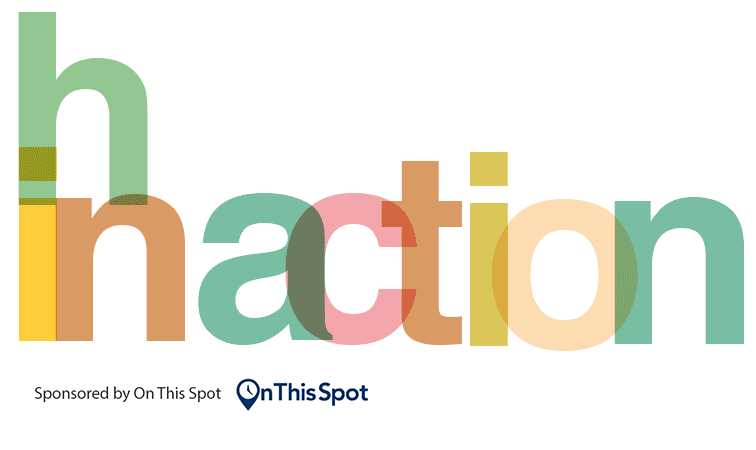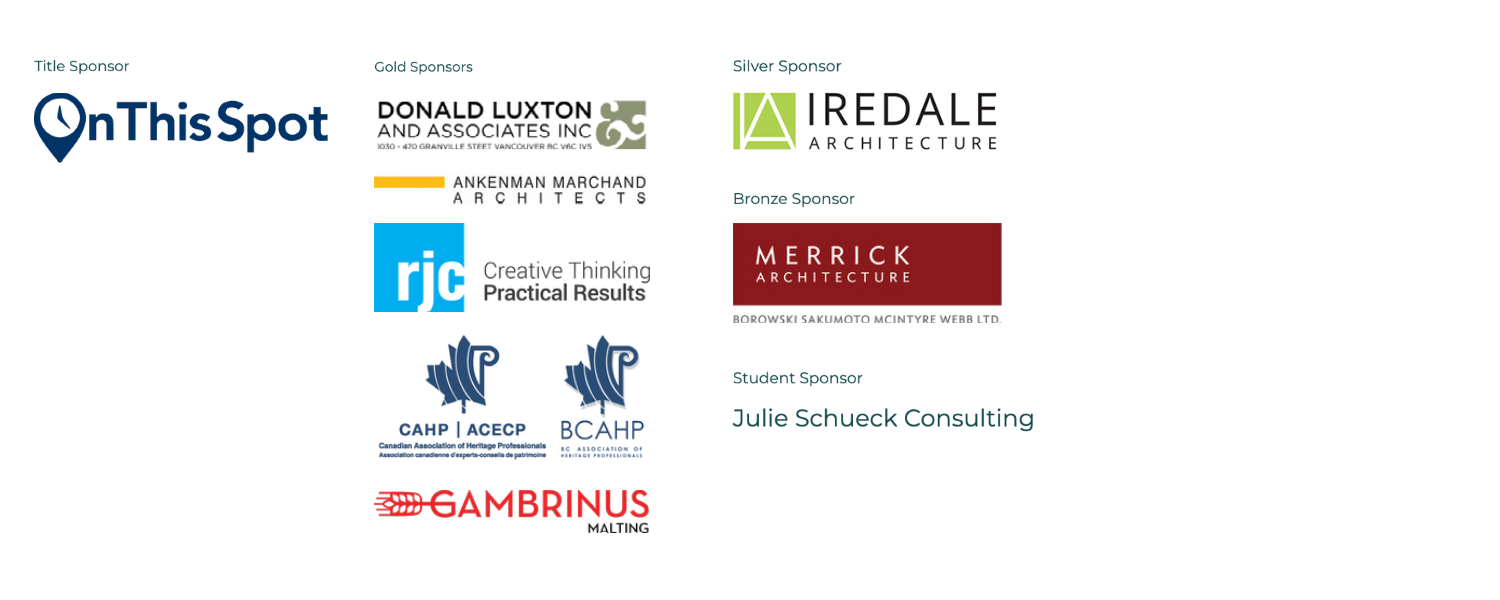- About
- Events & Activities
Events & Activities
- Learning Centre
- Cultural Maps
Cultural Maps
- Mapping Heritage Resources
- Submerged Heritage Resources Map
- Columbia Basin Region Historic Places Map
- Francophone Historic Places Map
- Chinese Canadian Historic Places Map
- Japanese Canadian Historic Places Map
- South Asian Canadian Historic Places Map
- War Monuments and Memorials Map
- Industrial Heritage Cultural Map
- Funding
- News
- Professional Development
Professional Development
- Contact
- 2024 Conference
- Heritage BC Awards
- 2023 Heritage Award Recipients
- 2022 Heritage Award Recipients
- 2021 Heritage Award Recipients
- 2020 Heritage Award Recipients
- 2019 Heritage Award Recipients
- 2018 Heritage Award Recipients
- 2017 Heritage Award Recipients
- 2016 Heritage Award Recipients
- 2014 Heritage Award Recipients
- 2013 Heritage Award Recipients
- Heritage Week
- Annual General Meeting 2024
- Dates to Know
Climate Adaptation: It’s Time for Action

Register for the 2021 Heritage BC Conference
Download Climate Adaptation:It’s Time for Action
AIBC CES Participants may self-report this learning activity for AIBC Learning Unit consideration.
All sessions are eligible for organized & structured CPL units for PIBC Members.
Climate Adaptation: It’s Time for Action
Thursday, May 20, 2021
This workshop series has been designed to offer inspiration, strategies, and actionable tools to mobilize climate action.
More than just a discussion, you will work through recommended steps, so that you come out of the session with first-hand knowledge and real-life experience. With new tools and knowledge, you will have the confidence and encouragement to continue this work with your staff, directors, volunteers and communities.
Let’s get to work.
Bringing the Power of Heritage to Climate Action
Thursday, May 20, 2021
9:30am – 10:30am
Cultural heritage is both impacted by climate change and an important part of strategies for driving climate action to combat climate change. Yet, the Heritage Climate Network notes that, despite the profound connections between climate change and culture, heritage actors and advocates have not yet been mobilized on climate change issues.
So, where do we want to go and how do we get there?
Mark Thompson Brandt, member of the ICOMOS Climate Heritage Network International Steering Committee and author of “Building Resilience: Practical Guidelines for The Sustainable Rehabilitation of Buildings in Canada”, returns to the conference with an up-tempo call to action as we consider the solutions not only for our historic sites, but also our communities.
Brandt will introduce the overall day of learning and will moderate themes that are common threads throughout the 3 seminar/workshop presentations. We will learn how we can get personally involved to help combat climate change and its impact on our heritage assets, and how there are really 3 different groups of actions that we must focus on:
- Prevention: Historic and older buildings are some of the greatest sources of carbon. How can we de-carbonize and what will be the impact on communities and heritage resources? From the circular economy to inherent sustainability, you will find a remarkable connection between natural and cultural conservation.
- Mitigation: What actions are possible to mitigate the effects of climate chaos upon our historic places? Besides hard engineering solutions, which themselves will create massive carbon footprints, what other choices do we have?
- Adaptation: At what point do we balance being rigid in the protection of character-defining elements and the heritage value they possess, with adaptation of the historic place to prevent total or catastrophic loss due to worsening climate impacts? The degree of adaptation to new climate realities is explored.
By the end of this session, you will have a much better understanding about how climate change is impacting our heritage and more importantly, be inspired by what we can do about it now, how we can all mobilize and leverage heritage conservation to help decarbonize our world, to meet our carbon targets of the global Paris Agreement.
Presented with Mark Thompson Brandt, OAA, RAIC, FAPT-RP, CAHP, LEED AP, Principal, Senior Conservation Architect & Urbanist, MTBA Associates Inc., Ottawa
First Nations Perspectives on Environmental conservation
Thursday, May 20, 2021
10:30am – 12:00pm
“Indigenous peoples are caretakers of Mother Earth and realize and respect her gifts of water, air and fire. First Nations peoples’ have a special relationship with the earth and all living things in it.”
In this opening statement to “Honouring Earth”, the Assembly of First Nations underscores a profound and spiritual relationship with the land and an environmental practice that is informed by reverence and reciprocity.
The statement continues, “Environmental degradation affects the health and well-being of not only the First Nations people but all peoples of North America and the world in many ways… First Nation traditional knowledge has provided our people with the tools to care for Mother Earth and our sacred sites. This knowledge can be shared…”
In this session, we begin to explore traditional knowledge of environmental protection and maintenance that has been in practice for millennia. As declared by EarthDay.org, “we must turn to Indigenous peoples for guidance and management.”
Presented with:
Robert (YELḰATŦE) Clifford, Assistant Professor, Peter A. Allard School of Law, University of British Columbia
Dr. Agnieszka Pawlowska-Mainville, BA, MA, PhD, Associate Professor, First Nations Studies, University of Northern BC
Gord Macdonald, Heritageworks
Climate Adaptation: A Framework for Action
Thursday, May 20, 2021
1:00pm – 4:00pm
In 2017, the Canadian Parks Council developed the “Climate Change Adaptation Framework for Parks and Protected Areas” as a guide for caretakers of historic sites to identify adaptation options and to pinpoint the greatest climate change risks and vulnerabilities.
Based on a collaborative process and building upon international practices and guidelines, the five-step adaptation framework is scalable and adaptable process that can be applied to various resources, such as natural heritage, cultural heritage, built assets, and visitor experience. or a combination. The resulting plan can be as detailed or as conceptual as desired. Instead of presenting the framework as a cycle, suggesting a process that is completed and then repeated, the framework was developed as five distinct steps, with key questions that need to be answered before initiating the following step.
For the first part of this climate action session, Parks Canada introduces us to the adaptation framework and workshop approach, while focussing on the insightful lessons they have learned along the way.
For the second part of the climate action session, we dig into the framework as we work through the achievable stages of reflection and discussion that lead us to planning and action. At the end of this workshop, you will have the knowledge and inspiration to work with your staff, volunteers, directors and community to achieve the necessary actions.
Presenters:
Anna Lee-Carswell, Climate Change Advisor, Parks Canada
Richard Linzey, Director, Heritage Branch, Province of BC
Moderator: Mark Thompson Brandt, OAA, RAIC, FAPT-RP, CAHP, LEED AP, Principal, Senior Conservation Architect & Urbanist, MTBA Associates Inc., Ottawa
Our Commitment
To encourage action beyond the conference, we are inviting conference participants (and anyone who wants to join) to continue the dialogue and action planning over the remainder of the year. This will provide opportunities to network, to discuss successes and challenges, to explore questions, and to offer community support.
Note: the ongoing meetings will be open to all; participating in the conference sessions does not imply a commitment to attend the community support meetings.
Heritage BC is proud to have the support of these leading businesses:

Schedule and timings are subject to change without notice. Periodically check the website for changes or email us if you have questions.
